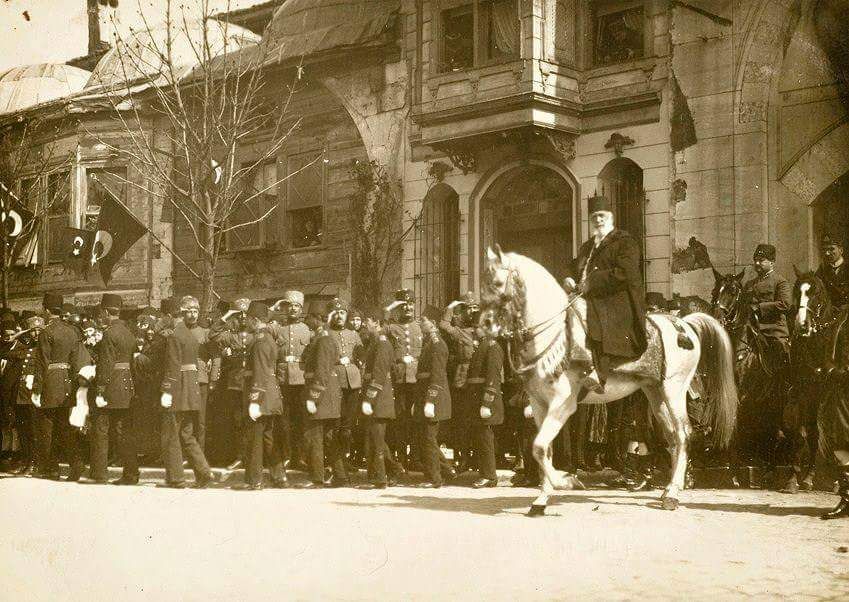بسم الله الرحمن الرحيم
Today in Ottoman history marks the 94th anniversary of an event so momentous that we are still feeling the aftershocks of it today: the abolishment of the Office of the Caliph. It marked a turning point in history. To fully appreciate the significance of this anniversary, we must take ourselves back to Istanbul. The year is 1924, sometime after midnight. A single light, coming from the library is on, in the Dolmabahçe palace. There, an old man sits quietly and reads the Qurʾan, pondering over the state of his Ummah (i.e. the Muslim nation). His name is Abdülmecid II and he is the 101st Caliph of Islam. Two years prior, his cousin Sultan Mehmed VI Vahdeddin had been exiled to Italy (where he later starved to death) and the Ottoman Sultanate had been abolished by the Grand National Assembly. The end of the Ottoman Empire had finally come to an end, however, the Office of the Caliph was not so easily dismantled, due to fears of a massive backlash that would ensue.
A campaign of violence and intimidation began to ensure that all those who supported the Caliph were removed. Then, on the night of March 3rd, the final move was made. A young army messenger opened the door to the library of the Dolmabahçe palace. The hunched over Caliph continued to read from the Qurʾan. The messenger was initially taken aback by the sight, but he forced himself and read out the proclamation from the Grand National Assembly. The Caliph refused to leave Istanbul, but his staff were worried that they would all be killed by the army that had now surrounded the palace and had him and his family, including women and children at gunpoint. After weighing the few options he had, he reluctantly packed some of his clothes and went into exile. Before morning prayer, the Caliph was taken to the main train station at gunpoint where he and his family were put on the Orient Express bound for Switzerland.
An envelope containing £2,000 was given to the man who left behind entire palaces full of diamonds, emeralds and gold. The station master quickly took the Caliph and his family into his small house adjoining the train station to shelter them from the cold on the platform while they awaited the train to start on its journey. As they drank tea, the Caliph thanked him for his hospitality. The station master, a Jewish man, began to cry. “How can you thank me?” he asked especially knowing that it was the Caliphs/Sultans of Islam who had preserved the life and dignity of the Jewish people whenever they were persecuted elsewhere in the world (e.g. Spain). Instead, he thanked the Caliph for the honour of being able to serve him even if for the briefest moment. In the morning, citizens awoke to the news that they had scarcely believed would ever happen – the Caliphate had been abolished. There were isolated riots and uprisings in various regions, but the army quickly put them down. The last Caliph spent his days walking along the promenade in Paris, France. There, he lived a humble life until he died in 1944 during the Nazi occupation of France.
As no Caliph had ever been buried in non-Muslim lands, Abdülmecid II’s body was eventually transported to, and buried in Jannat Al-Baqi cemetery in Madinah, Arabia. The major political and spiritual office of Caliph had also been buried with him as well, an office which, to this day, remains to be filled, leaving a lasting impact on present-day Muslim lands and the Middle East, and fracturing the unity and peace that Muslims once possessed in their neighbourhoods.
Pictured: The last Caliph of Islam, Abdulmecid Efendi II, just before the last Jum’uah of the Caliphate.
